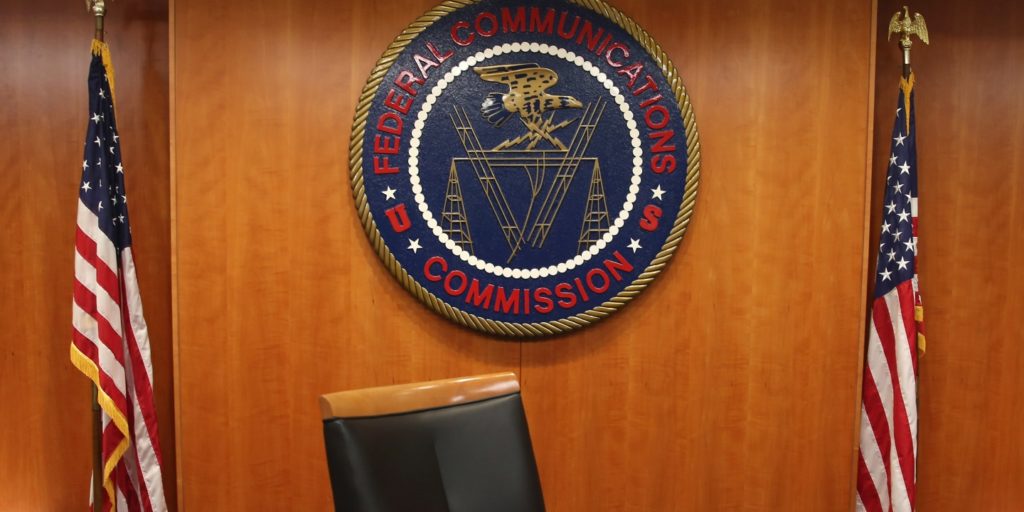Senate Republicans Just Sold You Out to Advertisers
WHISTLEBLOWING - SURVEILLANCE, 27 Mar 2017
23 Mar 2017 – In a 50-to-48 vote along party lines, the U.S. Senate decided to kill FCC rules blocking your ISP from selling your browsing history to the advertising industry without permission. Should the change pass the House, as is expected, the likes of Comcast and Verizon will be able to make money disclosing what you buy, where you browse, and what you search from your own home, all without asking permission.
In an immediate signal that the vote will only benefit monied corporate interests and not the roughly 70 percent of Americans with a home broadband connection, the Internet & Television Association trade group gloated over their congressional victory:
“We appreciate today’s Senate action to repeal unwarranted FCC rules that deny consumers consistent privacy protection online and violate competitive neutrality. … Our industry remains committed to offering services that protect the privacy and security of the personal information of our customers. We support this step towards reversing the FCC’s misguided approach and look forward to restoring a consistent approach to online privacy protection that consumers want and deserve.”
It’s unclear how the broadband industry could be “committed” to user privacy while backing regulatory changes that would permit the sale of users’ private data. NCTA spokesperson Joy Sims returned a request for comment and explanation with a link to an unrelated section of the NCTA website. The Electronic Frontier Foundation decried the vote as putting “ISP profits over your privacy” and a potential “crushing loss for online privacy”:
ISPs act as gatekeepers to the Internet, giving them incredible access to records of what you do online. They shouldn’t be able to profit off of the information about what you search for, read about, purchase, and more without your consent.
The EFF further warned that without the FCC protections, ISPs would not only be able to commodify your browser history, but “[hijack] their customers’ search queries and [redirect] them to a place customers hadn’t asked for” and “inject ads into your traffic based on your browsing history.” Should Republicans succeed in dismantling the Obama-era rules through this action sponsored by Sen. Jeff Flake, the FCC would be barred from ever reestablishing such consumer protections in the future.
_______________________________________
Related: Civil Rights Groups, Funded by Telecoms, Back Donald Trump’s Plan to Kill Net Neutrality
 Sam Biddle – ✉sam.biddle@theintercept.com
Sam Biddle – ✉sam.biddle@theintercept.com
Go to Original – theintercept.com
DISCLAIMER: The statements, views and opinions expressed in pieces republished here are solely those of the authors and do not necessarily represent those of TMS. In accordance with title 17 U.S.C. section 107, this material is distributed without profit to those who have expressed a prior interest in receiving the included information for research and educational purposes. TMS has no affiliation whatsoever with the originator of this article nor is TMS endorsed or sponsored by the originator. “GO TO ORIGINAL” links are provided as a convenience to our readers and allow for verification of authenticity. However, as originating pages are often updated by their originating host sites, the versions posted may not match the versions our readers view when clicking the “GO TO ORIGINAL” links. This site contains copyrighted material the use of which has not always been specifically authorized by the copyright owner. We are making such material available in our efforts to advance understanding of environmental, political, human rights, economic, democracy, scientific, and social justice issues, etc. We believe this constitutes a ‘fair use’ of any such copyrighted material as provided for in section 107 of the US Copyright Law. In accordance with Title 17 U.S.C. Section 107, the material on this site is distributed without profit to those who have expressed a prior interest in receiving the included information for research and educational purposes. For more information go to: http://www.law.cornell.edu/uscode/17/107.shtml. If you wish to use copyrighted material from this site for purposes of your own that go beyond ‘fair use’, you must obtain permission from the copyright owner.
Read more
Click here to go to the current weekly digest or pick another article:
WHISTLEBLOWING - SURVEILLANCE:
